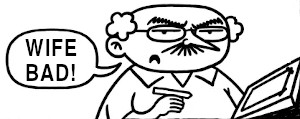





Insane Clown Posse - Fuck The World.


We can’t just create more 18 year olds on demand,
Well, there’s an easy way to get a lot of 18 year olds, but ICE is making sure that won’t happen.
It makes sense now.


I’m glad to hear that. Otherwise we’d be confronted with the possibility of vast factory farms of mature beavers having their “castor sacs” milked daily.


Possibly. But there are several different types of vanilla. Also:
An estimated 95% of “vanilla” products are artificially flavored with vanillin derived from lignin instead of vanilla fruits.
and
However, vanillin is only one of 171 identified aromatic components of real vanilla fruits.
Also you may be amused to know:
In the United States, castoreum, the exudate from the castor sacs of mature beavers, has been approved by the Food and Drug Administration as a food additive,[54] often referenced simply as a “natural flavoring” in the product’s list of ingredients. It is used in both food and beverages,[55] especially as vanilla and raspberry flavoring, with a total annual U.S. production of less than 300 pounds.[55][56] It is also used to flavor some cigarettes and in perfume-making, and is used by fur trappers as a scent lure.


OK, I’ll look at the ingredients.
CORN SYRUP, SUGAR, DEXTROSE, MODIFIED CORNSTARCH, WATER, CONTAINS LESS THAN 2% OF GELATIN, TETRASODIUM PYROPHOSPHATE (WHIPPING AID), NATURAL AND ARTIFICIAL FLAVOR, BLUE 1.
https://www.kraftheinz.com/jetpuffed/products/00600699003285-marshmallows
Looks like there is some kind of “natural and artificial flavor” besides sugar and corn syrup. Wat are those? Dunno. Apparently it’s legal to have secret ingredients that are not disclosed unless a Non-Disclosure Agreement is signed.


There’s a distinct flavor
Yeah, when I was a kid, there were like 2-3 difference places I could get soft-serve ice cream from, and at one of them the vanilla flavor was marshmallow-like and it was my favorite.
I don’t have an answer, tho. For all I know, it was just a distinctive type of vanilla.


I think you’re taking heat a little bit unfairly. This is, after all, the MILDLY infuriating community, and it can be a hassle when something stops working for you, even if it’s perfectly reasonable for it to happen.
No way, that’s the guy who said the industrial revolution and its consequences are a disaster for humans.
/s


Have you taken a look at the plato.stanford.edu entry on such, specifically the bibliography?
https://plato.stanford.edu/entries/thought-experiment/#Bib
edit:
The number of papers, anthologies, and monographs has been growing immensely since the beginning of the 1990s. It might be useful to highlight that in existing literature, Kühne (2006) remains the most substantial historical study on the philosophical exploration of thought experiments. And Sorensen (1992) remains the most comprehensive philosophical study of thought experiments. More than other monographs both of these studies well exceed the author’s own systematic contribution to what is widely considered the primary epistemological challenge presented by thought experiments. Also, this bibliography does not include the many (we count about eight) popular books on thought experiments (like Wittgenstein’s Beetle and Other Classical Thought Experiments by Martin Cohen); nor do we list fiction that is related to the subject (like The End of Mr. Y by Scarlett Thomas, or God’s Debris by Scott Adams). Further, for undergraduate teaching purposes one might want to consider Doing Philosophy: An Introduction Through Thought Experiments (edited by Theodore Schick, Jr. and Lewis Vaughn, fifth edition, 2012, Boston: McGraw Hill Higher Education), and chapter 5 of Timothy Williamson’s short introduction to philosophical method (Oxford University Press, 2020). Moreover, a number of philosophical journals have dedicated part or all of an issue to the topic of thought experiments, including the Croatian Journal of Philosophy (19/VII, 2007), Deutsche Zeitschrift für Philosophie (1/59, 2011), Informal Logic (3/17, 1995), Philosophica (1/72, 2003), Perspectives on Science (2/22, 2014), Berichte zur Wissenschaftsgeschichte (1/38, 2015)), as well as TOPOI (4/38, 2019), HOPOS (1/11, 2021), and Epistemologia (12/2022). Furthermore, a companion to thought experiments exists now: The Routledge Companion to Thought Experiments was published in 2017. Each includes substantial state of the art reports.


deleted by creator
That sounds an awful lot like “don’t do anything that might upset the Christians.”
FWIW I interpreted this as unironically uplifting, along the lines of “Where the Wild Things Are”.
Juggalo cat whoop whoop.
“Who will simp the Simpsons?” -Juvenal, probably


see: https://grafana.lem.rocks/goto/gMske4jHR?orgId=1
I don’t understand everything on this chart, but it looks like sh.itjust.works lagged a bit over the past 24 hours and is now catching up.
dunno I don’t use mobile clients for piefed… I think there’s one but don’t know much about it.
Yep, it’s happening on !vampires@lemmy.zip, click this link to see: Dracula Readthrough